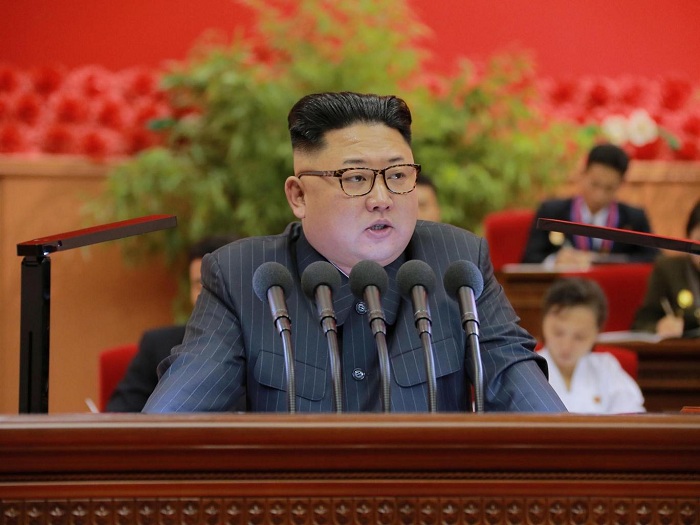Graham Barrow, a London-based anti-money laundering expert, said these kinds of transactions are “red flags,” and are all hallmarks of efforts to conceal the origins of illicit cash.
A trove of confidential bank documents reviewed by NBC News offers a rare glimpse into how North Korea — and other rogue actors — move illicit cash across borders despite international sanctions designed to block Pyongyang’s access to the global financial system. The suspected laundering by North Korea-linked organizations amounted to more than $174.8 million over a period of several years, with transactions cleared through U.S. banks, including JPMorgan and the Bank of New York Mellon, according to the documents.
“Taken as a whole, you have what really, frankly, looks like a concerted attack by the North Koreans to access the U.S. financial system over an extended period of time through multiple different avenues in ways that were fairly sophisticated,” said Eric Lorber, a former official at the Treasury Department who worked on North Korea sanctions under the Trump administration.
The leaked documents are part of the FinCEN Files, a collaborative project with the International Consortium of Investigative Journalists, BuzzFeed News, NBC News and more than 400 journalists around the world, examining a cache of secret suspicious activity reports filed by banks with the Treasury Department’s Financial Crimes Enforcement Network, known as FinCEN, as well as other investigative documents. The leaked documents were obtained by BuzzFeed.
As NBC News and other media outlets prepared to publish stories based on the leaked documents, FinCEN announced plans on Wednesday, Sept. 16, for a major overhaul of the nation’s anti-money laundering rules.
Suspicious activity reports (SARs) are filed by banks and other financial institutions to alert law enforcement to potentially illegal transactions but do not necessarily represent evidence of legal wrongdoing. The reports are highly confidential and closely guarded by both banks and U.S. authorities.
The Treasury Department’s Financial Crimes Enforcement Network condemned the leak of the documents, declined to comment on the content of the suspicious activity reports and said it had referred the matter to the Justice Department and the Treasury’s inspector general.
“As FinCEN has stated previously, the unauthorized disclosure of SARs is a crime that can impact the national security of the United States, compromise law enforcement investigations, and threaten the safety and security of the institutions and individuals who file such reports,” the department said.
The documents cover a period mainly from 2008 to 2017, during which both the Obama and Trump administrations steadily tightened sanctions against North Korea to try to prevent the regime from building up its nuclear weapons and ballistic missile arsenal. The sanctions in part are meant to block the regime’s attempts to buy or sell material for its weapons programs and to secure hard currency. But the records convey a cat and mouse game in which North Korea — often with the help of Chinese companies — found ways to slip under the radar, experts said.
“The documents you have in front of you, I think help explain why the North Koreans have been so successful at sanction evasion,” said Hugh Griffiths, who served as head of the UN Panel of Experts until last year tracking sanctions-busting by Pyongyang. “What you have is gold dust because so few journalists, or investigators generally, get access to banking internal compliance documentation.”
CNBC
More about: NorthKorea
















































